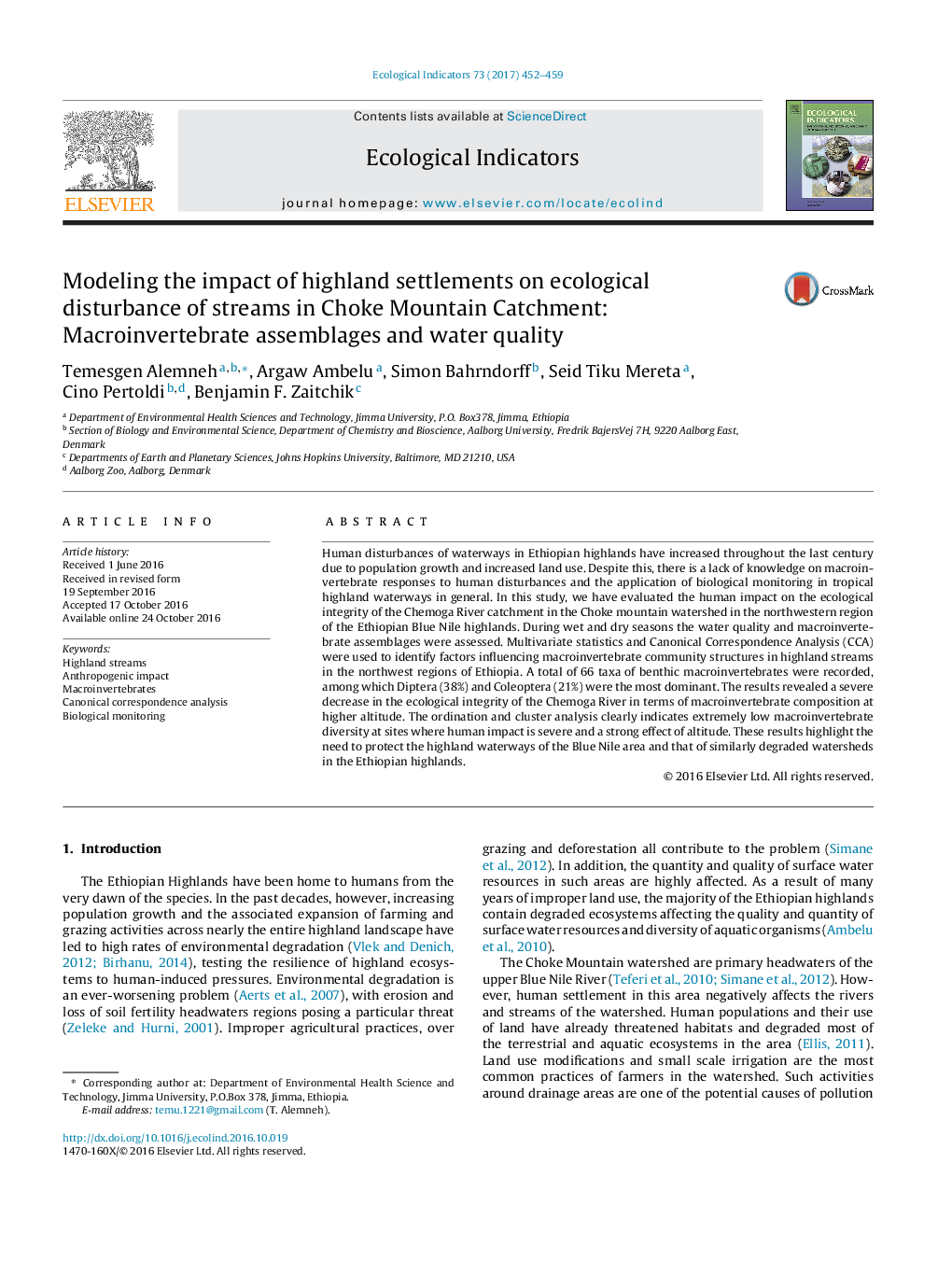| Article ID | Journal | Published Year | Pages | File Type |
|---|---|---|---|---|
| 6292619 | Ecological Indicators | 2017 | 8 Pages |
Human disturbances of waterways in Ethiopian highlands have increased throughout the last century due to population growth and increased land use. Despite this, there is a lack of knowledge on macroinvertebrate responses to human disturbances and the application of biological monitoring in tropical highland waterways in general. In this study, we have evaluated the human impact on the ecological integrity of the Chemoga River catchment in the Choke mountain watershed in the northwestern region of the Ethiopian Blue Nile highlands. During wet and dry seasons the water quality and macroinvertebrate assemblages were assessed. Multivariate statistics and Canonical Correspondence Analysis (CCA) were used to identify factors influencing macroinvertebrate community structures in highland streams in the northwest regions of Ethiopia. A total of 66 taxa of benthic macroinvertebrates were recorded, among which Diptera (38%) and Coleoptera (21%) were the most dominant. The results revealed a severe decrease in the ecological integrity of the Chemoga River in terms of macroinvertebrate composition at higher altitude. The ordination and cluster analysis clearly indicates extremely low macroinvertebrate diversity at sites where human impact is severe and a strong effect of altitude. These results highlight the need to protect the highland waterways of the Blue Nile area and that of similarly degraded watersheds in the Ethiopian highlands.
